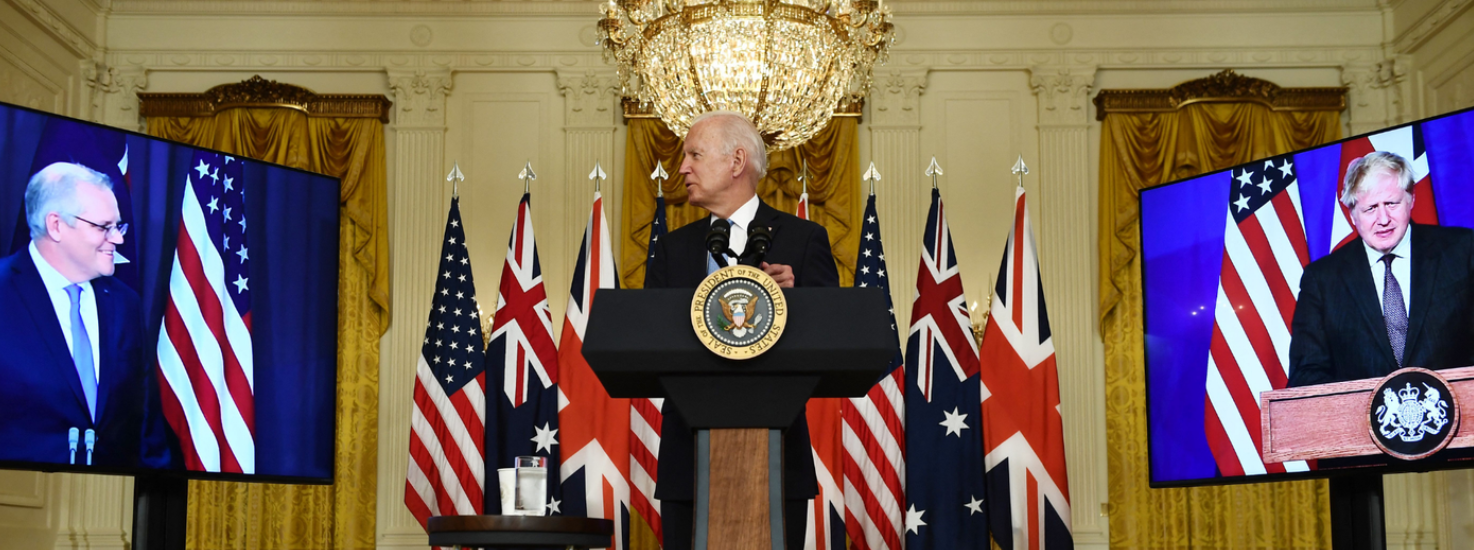Thu Sep 29, 2022
Thursday / September 29
US concerned for UK
The Biden administration is alarmed over the market turmoil triggered by the new UK government’s economic program and is seeking ways to encourage Prime Minister Liz Truss’s team to dial back its dramatic tax cuts.
Officials inside the US Treasury Department are concerned at the volatility in financial markets and potential spillovers to the broader economy. Americans are working through the IMF to apply pressure on Truss’s government, Bloomberg reports.
The Bank of England on Wednesday announced it would buy long-dated gilts in light of the recent “significant repricing” of UK government debt. “Were dysfunction in this market to continue or worsen, there would be a material risk to UK financial stability,” the BoE said.
BoE's £65bn bond-buying programme came as the central bank warned of a “material risk to UK financial stability” from turmoil in the gilts market sparked by chancellor Kwasi Kwarteng’s tax cuts and borrowing plan last week.
Yields on UK government bonds, known as “gilts,” were on track for their sharpest monthly rise since at least 1957 as investors fled British fixed income markets following the new fiscal policy announcements. The measures included large swathes of unfunded tax cuts that have drawn global criticism, including from the IMF.
In a statement Wednesday, the central bank said it was monitoring the “significant repricing” of UK and global assets in recent days, which has hit long-dated UK government debt particularly hard.
“Were dysfunction in this market to continue or worsen, there would be a material risk to UK financial stability. This would lead to an unwarranted tightening of financing conditions and a reduction of the flow of credit to the real economy,” the Bank of England said.
Hurricane Ian
Hurricane Ian plowed into southeastern US state of Florida's Gulf Coast with catastrophic force on Wednesday, unleashing winds, torrential rains and a surge of ocean surf.
Ian made landfall near Cayo Costa, Florida as a Category 4 hurricane, with sustained winds of up to 150 miles per hour (241 km per hour), the US National Hurricane Center (NHC) reported.
Ian knocked out power to at least 1.1 million homes and businesses so far, local utilities reported. Earlier this week, authorities told more than 2.5 million residents to evacuate.
Speaking Wednesday, US President Joe Biden warned oil and gas companies against raising prices amid the storm. "Do not, let me repeat, do not use this as an excuse to raise gasoline prices or gouge the American people," he said.
The Interior Department’s Bureau of Safety and Environmental Enforcement, which oversees offshore oil and gas rigs in the Gulf of Mexico, said companies have suspended about 190,000 barrels a day of oil production in the Gulf of Mexico. That equates to less than 2 percent of total U.S. oil production.
More sanctions on Russia
The United States will in coming days impose economic costs on Moscow over "sham" referendums held by Russia in occupied regions of Ukraine, the State Department said on Wednesday.
Biden administration officials look to the finance and energy sectors for future sanctions action on Russia.
"We will continue to work with allies and partners to bring even more pressure on Russia and the individuals and entities that are helping support its attempted land grab," State Department spokesperson Ned Price told reporters.
The administration announced $1.1 billion in additional security assistance for Ukraine on Wednesday.
Wall Street
On Wall Street, the Dow jumped 548.75 points, or 1.88%, to 29,683.74. The S&P 500 rose 1.97% to 3,719.04, one day after notching a new bear market low. The Nasdaq Composite was up 2.05%, ending the session at 11,051.64.
The Dow and the S&P 500 snapped a six-day losing streak. The Dow is now 19.7% off its 52-week high, while the S&P 500 is 22.8% below its record. The Nasdaq is down 31.8%.
The 10-year US Treasury yield ended the day at about 3.7% after earlier breaking above 4% for the first time since 2008.
